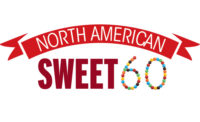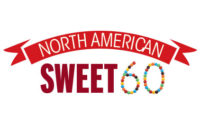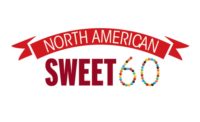Like everything else in our new normal, candy manufacturers in North America are fighting to stay in business. Some companies are having an easier time than others, but in a holiday-based business—losing out on Easter was a big hit for most.
Companies that made it to this year’s “North American Sweet 60” are banking on a rebound before year’s end, but some aren’t willing to make public predictions and others are willing to use last year’s sales as a hopeful projection for this year.
Ironically, many confectioners had started the year with increases –that was until shutdowns were imposed and customers feared venturing out to shop during one of the biggest candy seasons of the year.
CandyRific owner Rob Auerbach says business has been “very difficult.” The Lexington, Ky., business is known for its novelty and interactive candy choices. They were already doing many of its sales calls by video, so the company was better able to adjust. Yet, “it has been very difficult,” he says. “Seventy percent of our customers were physically closed, and Easter sales were very weak.”
Companies like Arway Confections/Long Grove Confectionery of Chicago are projecting sales to be down compared to last year. “Covid-19 presents challenging times, for sure,” says President Craig Leva. “Many of our customers were closed at the onset of the pandemic. We have been able to service our customers related to grocery and mass retail, but the volume has significantly decreased.”
They are practicing social distancing and additional sanitizing, as everyone is doing. “We have our fingers crossed, like everyone else, that the second half of the year will look something closer to normal,” Leva adds.
Yet Auerbach notes, “this depends on whether our customers cancel Halloween and Christmas. If there is another lockdown in the fall, all bets are off!”
“It couldn’t have hit at a worse time for Easter sales,” says David Hawk, of Gertrude Hawk Chocolates, in Dunmore, Pa. “But we managed to deliver most of our fundraising and all of our wholesale orders. The big loss was in retail, but web sales and curbside pickup saved a portion of the day.”
Although in some regions candy stores were allowed to stay open as an “essential” business, some companies chose to close because there just was not enough foot traffic to the stores.
Quebec’s Laura Secord closed its stores and were just starting to reopen as this story was finishing up in early May. Ecommerce helped them through the pandemic, as well. They even launched a new line of puffed rice bars in three different flavors, to extend their product offering, to a new category-- snack bars.
Georgia Nut Co., of Skokie, Ill., also is expecting lower sales this year—about $25 million less than in previous years. But the company is expanding certain segments in hopes of increasing sales back to its normal $150 million range and beyond. “We are expanding our clean label, ethically-sourced and low-sugar options to support the growing market for these products,” says John Drehobl, director of sales and marketing. “We’re also offering a much broader range of seasonal products as we find consumers enjoying new products for various occasions. Our line is taking a more modern twist on classic seasonal candies.”
“Like everyone else, we’re adapting to this new reality,” he continues. “We’ve made a number of investments to provide a safe working environment for our associates and done everything we can to go above and beyond the CDC’s recommendations as people are our biggest asset. It’s been nice to have many great partners in the industry to discuss the current landscape and ways to continue providing great service to our customers.”
Ford Gum & Machine Co., of Akron, N.Y., had just signed two new licenses this year, according to its president, George Stege, Jelly Belly Sugar-Free Gum and with Impact Confections for Warheads Super Sour Gum.
Yet the virus has impacted sales, says Stege, “particularly for our biggest brand Big League Chew – which is a staple with Little Leaguers - since Little Leagues have yet to form this year.” And with retail closures, it also caused a decrease in demand in retail sports outlets. “How much of an impact all this will have will depend on how long these conditions last,” he says. “We remain confident that once these rules and closures are lifted. Sales will rebound.”
While brick and mortar companies saw decreases, companies that rely on mass merchandizing through the grocery chain may not have had it so bad.
The Promotion In Motion Cos. saw an increase this spring, projecting this year’s sales to be around $525 million, which is $50 million more than last year. “March was the biggest month we’ve ever had,” says company President Michael Rosenberg, and citing it was over $30 million over normal monthly volume. “But we are running 24/7 at all the factories while we did get hit with some issues the past few weeks losing some people temporarily who tested positive and had to reduce output and adjust production lines and shut briefly for deep cleaning.”
“All in all, however, our people have risen to the occasion,” he notes. The Allendale, N.J., manufacturing and distributing company donated two truckloads of Welch’s Fruit Snacks (millions of pouches) to Feeding America to help food pantries across the Covid-19 hard hit Northeast and gave a $5,000 gift to its hometown food pantry.
Enstrom Candies, of Grand Junction, Colo., notes their sales have not been affected so far. “We’ve been mostly a mail-order company since our inception, so we were really set up to thrive in these trying times,” says Jim Simons, VP of sales and co-owner. “We had all our Easter candy produced and was able to give all of our production workers three weeks paid furlough to help them through the trying times.” Its retail stores and warehouse continued to work but everyone had the choice to work or stay at home.
Vosges-Haut Chocolat, of Chicago, also was helped by Ecommerce. “Yes, we have been able to weather the storm of the pandemic and shift our attention to our direct to digital business with seamless execution, authentic content generation which has led to an increase in demand and sales,” says spokesperson Natalie Markoff.
“Our sales have not seen the dip we are hearing from others in the confectionery business,” says Ben Radoll, of Piedmont Candy Co., in Lexington, N.C. The VP of product development for the manufacturer of Red Bird Candy Puffs says they are doing aggressive product development with flavor extensions and plan for new panned chocolate items in an effort to bolster their $20 million in annual sales. “We feel these operational changes will make a more profitable and resilient Piedmont Candy Co. in our near and long-term futures.”
Others like American Licorice reports their larger pack sizes and their Ecommerce and digital-influenced sales have increased substantially due to people “stocking up,” according to Kristi Shafer, VP of marketing at the La Porte, Ind., manufacturer.
Sarris Candies, of Canonsburg, Pa., also notes that curbside pickup, internet sales and vendors have continued selling their product. “Our vendors have been essential businesses, which allowed us to continue to produce and sell,” says Bill Sarris, company president.
Two more companies were added to this year’s list. As always stated, this story is a work in progress. Simply Good Foods Co., of Denver, Co., owner of Atkins and Quest nutrition bars, chocolate powder and shakes, has an estimated $818 million in sales. The company acquired Quest last August as a compliment to the Atkins brand.
Sconza Chocolates, of Oakdale, Ca., also was added. Sconza is one of the largest pan operators in North America, according to company president Ron Sconza, with 160 coating pans, a newly installed mogul, and a 2-million-pound liquid chocolate/coating storage tank. They are being estimated as a $90-million company, though no confirmation was given.
Edward Marc Brands, originally posting $60 million in sales, were taken off the list after restructuring, separating out The Milk Shake Factory from Edward Marc Brands. Chris Edwards, owner of Edward Marc Brands, said the confectionery sales were not high enough to make the list without the ice cream business, which is now owned by his sister, Dana Edwards Manatos.
In other news, Mondelez International moved its headquarters from Deerfield, Ill., to downtown Chicago in April. As of early May, the company donated $20 million to aid relief globally with cash and product.
The Hershey Co. has also donated millions in cash and product to hospitals, healthcare organizations, food banks and other philanthropic feeding organizations, and was setting up operations to make face masks.
In times of trouble, everyone needs a treat. While some people may be budgeting their money, many will splurge on some candy—especially for others.
“We are in a unique position, as 1-800-FLOWERS.COM Inc. helps customers express, connect and celebrate with the important people in the lives every day,” says Kathleen Waugh, company spokesperson. “Consumers have been increasingly turning to our brands to help them reach out to others during this difficult time.”
That is what ALL of the confectionery companies are banking for in these trying times.




